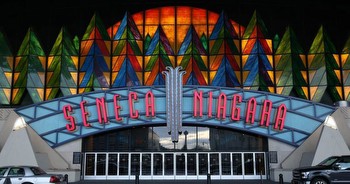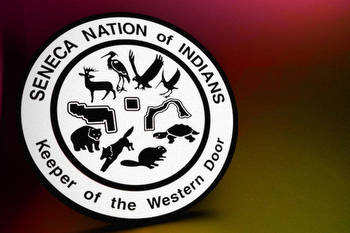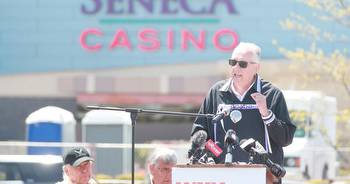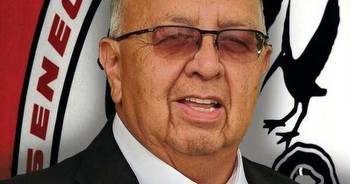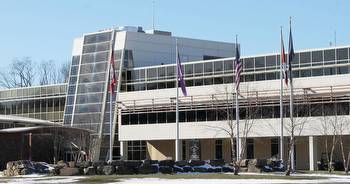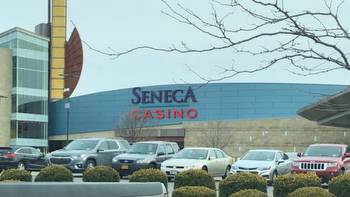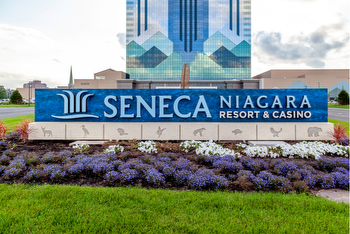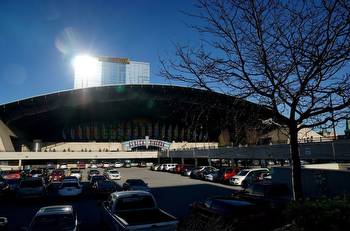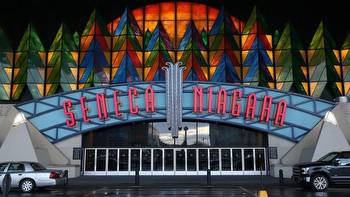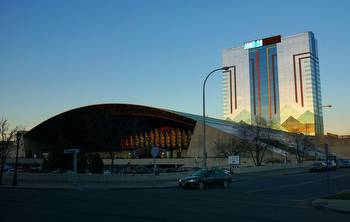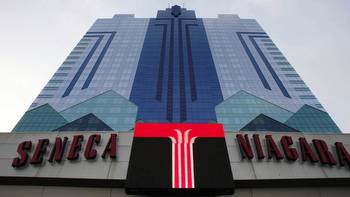Clock in ticking for new Seneca casino agreement
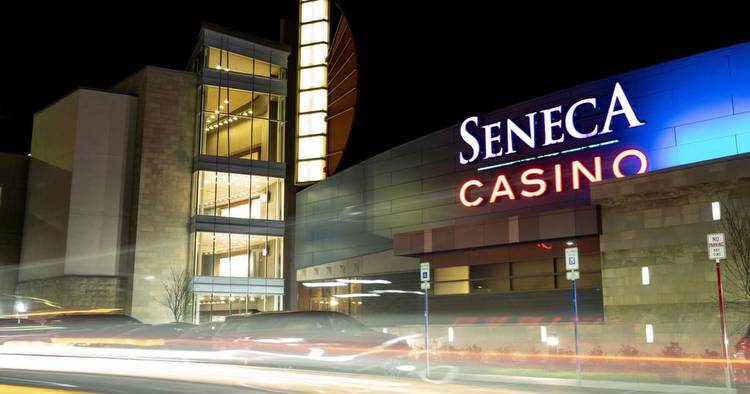
ALBANY – The clock is ticking for New York and the Seneca Nation to strike an agreement allowing casino gaming to continue at three Seneca-owned facilities in Western New York.
Top Hochul officials did not deny that a Rochester casino was part of a deal with the Seneca Nation, and on Saturday, the Assembly refused to pass the bill authorizing Hochul to enter a new compact.
The original Seneca Nation Compact, reached in 2002, expires Dec. 9, or in about five weeks.
In recent months, negotiations over a new compact have stalled. In some respects, time has already run out.
Even if Gov. Kathy Hochul and the Seneca Nation struck a new deal imminently, several time-consuming steps would have to play out for the agreement to be finalized.
Hochul would have to call the State Legislature to a special session in Albany to pass legislation authorizing a new agreement; the Seneca Nation would need to hold a referendum for its members to approve the deal; and the federal Bureau of Indian Affairs would have to review the deal, a process that can take up to 45 days.
One possibility is that New York State and the Seneca Nation will mutually agree to an extension of the current compact’s terms. Under federal regulations, a time extension is allowed – to give the parties time to finish negotiating – as long as the other terms remain unchanged.
In a May interview with The News, Seneca President Rickey Armstrong Jr. was asked whether Seneca casinos would have to shut down operations if a new agreement was not struck by Dec. 9.
“I feel like it won’t shut down,” Armstrong said. “I think there will be an extension period where we finish negotiating.”
In a video posted last week, Rickey Armstrong Sr. said that earlier this summer, the Nation and Hochul administration had only a “percentage point” difference in their positions on the revenue sharing rate, but that the state’s offer had gotten “significantly” worse since then.
Unlike a new agreement, the Bureau of Indian Affairs does not have to review or approve an extension of already-existing agreements.
To strike a new compact agreement, Hochul would be required to receive approval from the State Legislature. A Hochul spokesman did not answer a question, however, about whether the administration believed the Legislature would need to approve a temporary extension.
The Hochul administration is “not going to comment on hypothetical scenarios,” the spokesman said.
A spokeswoman for State Sen. Tim Kennedy, D-Buffalo, who leads a Senate committee focused on State-Native American relations, said the office had no updates on a possible special session of the Legislature being held. The federal Bureau of Indian Affairs did not respond to a request for comment.
Under federal law, full-scale casino gaming – formally known as “Class III gaming” – is allowed on Native American lands when a Tribal-State compact “is in effect.”
Even if an extension were not reached, however, it’s unlikely the Seneca Nation would have to shutter its casinos on Dec. 10.
I. Nelson Rose, a national expert on gambling law, said the language of federal law does also contemplate a scenario where Native American tribes operate full-scale casinos while negotiations are ongoing.
“Tribal casinos do continue to stay open while negotiations are taking place, and even when there are no negotiations,” Rose said. “If they are required to make payments under the existing compact, they should continue to put the money into an escrow account, even though they legally might no longer be required to make the payments. The state could seek an injunction to close it down, but no judge would issue one, given the horrible impact closing the casino would have on the tribe and community.”
In late September, State Sen. George Borrello, R-Sunset Bay, sent a letter to Hochul, asking her to personally meet with Armstrong about the compact negotiations.
“As the only New York State official who can approve a gaming compact between the state and the Seneca Nation, it’s imperative that Gov. Hochul agree to a meeting with President Armstrong,” said Borrello, who represents the Senecas’ Allegany and Cattaraugus territories.
So far, Hochul has declined to hold such a meeting.
For the Seneca Nation, an extension of the current agreement for any significant length of time is not a desired outcome.
Under the original compact struck between the Nation and state in 2002, the Nation has in recent years been paying 25% of revenues on slot machines and other gaming devices in exchange for the exclusive right to offer these devices west of State Route 14.
Since 2002, the gaming market has grown saturated in the northeastern United States, making the exclusivity less valuable. In a new deal, the Nation is looking to pay far less than the current 25%.
In early June, the Nation and top Hochul administration staff did strike an agreement in principle on a new deal. But it fell apart after a key detail leaked: that the Hochul administration would allow the Senecas to build a fourth casino in the “Rochester market.” To secure a higher revenue sharing rate, the Hochul administration floated the Rochester casino proposal.
Rochester Assembly members, stunned to learn of the plan, opposed the deal – and the Assembly declined to take up a bill allowing Hochul to enter a deal before the state legislative session ended June 10.
As part of the secretive June agreement, the Senecas had agreed to pay 19.5% of revenue on slot machines to New York State. But without a full-scale Rochester casino, the Nation is pursuing a far lower rate in negotiations.
In the video posted in August, Armstrong said that earlier this summer, the Nation and Hochul administration had only a “percentage point” difference in their positions on the revenue sharing rate, but that the state’s offer had gotten “significantly” worse since then.
At some point, the Legislature will have to return to Albany to pass a bill authorizing Hochul to enter any new compact, but this time, lawmakers will likely demand details of a deal be disclosed first.








